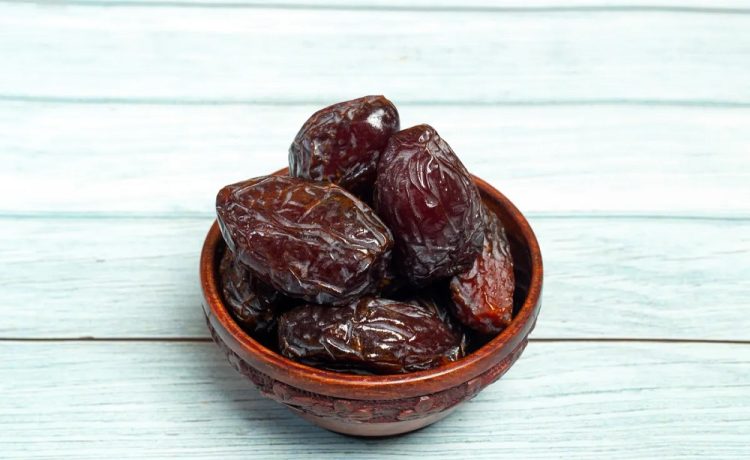The Medjool variety of dates is often consumed because of its unparalleled sweetness. They stand out from other popular types like the Deglet Noor due to their larger size, darker colour, and caramel-like flavour.
They have edible flesh surrounding a single pit because they are tropical stone fruits. Originally from Morocco, Medjool dates are now cultivated across the warmest parts of the United States, the Middle East, South Asia, and Africa.
They are soft and sticky because they are not dehydrated before sale. As they dry, their sugars condense, increasing their sweetness.
Medjool Dates—What Are They?
Dates are grown in warm regions worldwide, including the Middle East, California, Arizona, and Florida. The Medjool date is popular because of its enormous size, mild texture, and delicious flavour.
Medjool dates are an example of raw fruit. The dried dates you see in the baking section are the ones most people have in mind when they think of dates. Immediately after being plucked from the date palm, Medjool dates are washed, sorted, and packaged. They are never chemically or physically dried, and there needs to be processing. You may find them in the grocery store’s fresh produce department.
How Are Medjool Dates Cultivated?
It takes a lot of work to cultivate Medjool dates. The farmers consider their work a labour of love. It takes a tree around seven years to reach total productivity. This requires growers to access the date palms 12-15 times yearly physically. Not “fields,” but “date gardens” or “date groves” are what farmers refer to as their crop spaces.
Tips To Incorporate Dates In Your Diet
Dates, mainly Medjool dates, are widely available at grocery stores across the United States. If you slice a Medjool date in half lengthwise, you can remove the pit in the centre.
Because of their sugary caramel flavour, they are often considered for use in sweet foods. The American Institute for Cancer Research provides chocolate, date mousse, date, walnut, and dark chocolate cookie recipes using Medjool dates. People can eat Medjool dates in various ways, including adding them to fruit smoothies, topping oatmeal and cereals, incorporating them into salads and other savoury foods, stuffing them with nuts or cheese, and eating them plain.
Conclusion
Although Medjool dates are high in calories and rich in minerals and antioxidants, for instance, the fibre in these foods has been shown to improve digestive health and heart function while reducing the risk of numerous chronic diseases. You can consume them as a snack, blend them into smoothies, or substitute them for sugar in baked goods and other sweets.












